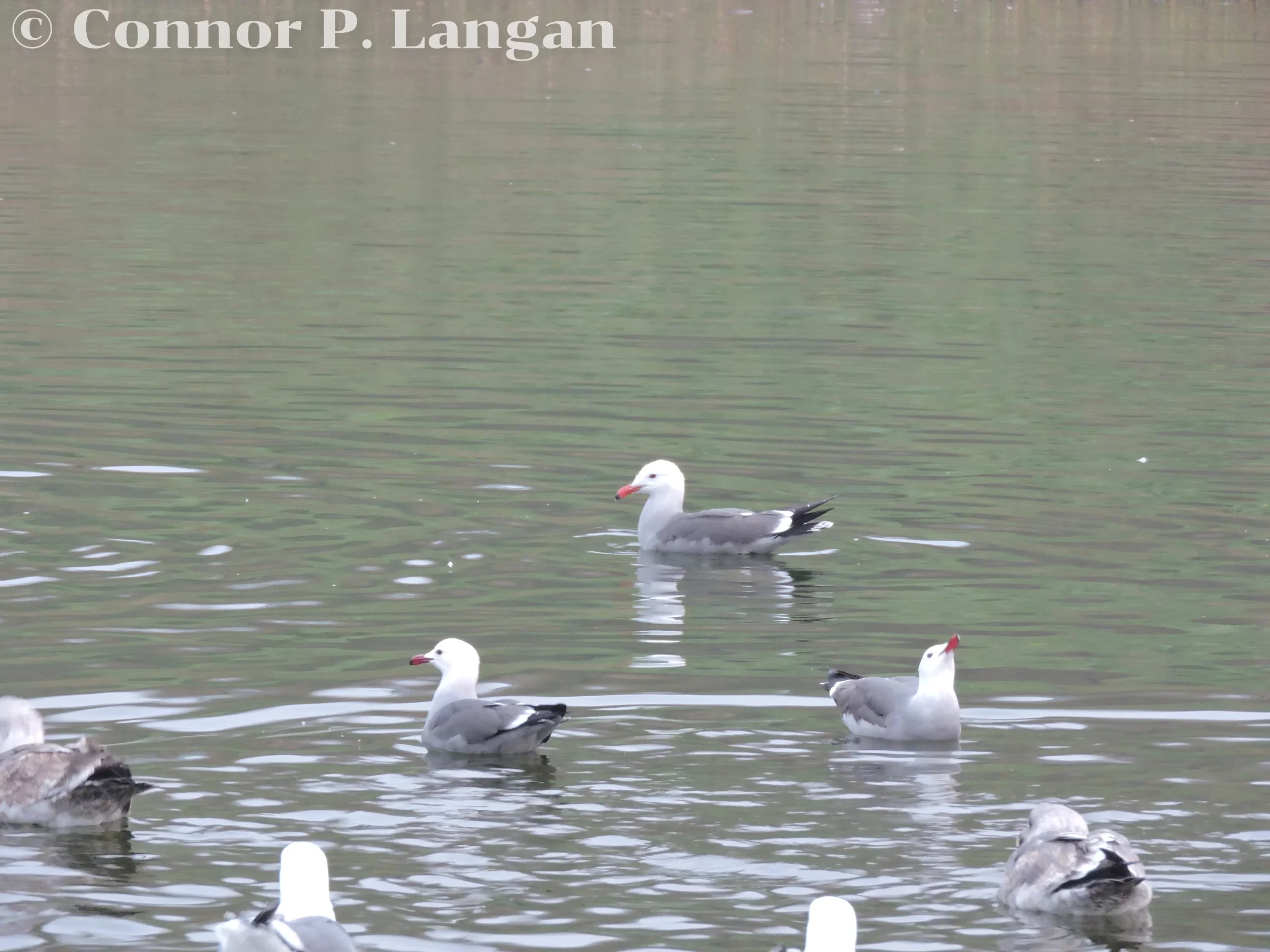Seagulls are perhaps the most despised group of birds, but they’ve done little to warrant such hate. Yes, there are many people who would love to harm seagulls, but before they consider doing so, they should figure out what sort of protections seagulls have. Are seagulls protected?
Well, know that seagulls will have different levels of protection depending on where you are in the world. However, if you live in the United States, Canada, Japan, Russia, or Mexico, be aware that seagulls are fully protected by the Migratory Bird Treaty Act. This document makes it illegal to kill or harm a seagull or any native bird species (unless there is a hunting season for that species). In the case of seagulls, there are no hunting seasons, so these birds are fully protected in the countries above.
Now, there are exceptions to this rule. For instance, native communities within Canada and the United States are often able to harvest seagulls and other birds that are not otherwise hunted.
Table of Contents
Some may find it hard to believe that seagulls have such protections when species like waterfowl and even cranes can be hunted in many areas. Why are seagulls protected?
Why Are Seagulls Protected?
Now that you know that seagulls are protected in many instances, you may be curious about the reasoning behind this protection. Why are seagulls protected?

Well, seagulls are distributed throughout much of the world. The ability of gulls to migrate long distances means that they can be found almost anywhere. Therefore, these birds are native to almost every country, meaning they benefit from laws and regulations protecting native birds. Moreover, seagulls are not considered to be a game species in any part of the world, so there is no hunting precedence for this species.
Given that seagulls are native to many parts of the world and not hunted or eaten as food by most, these birds are protected.
The reasons that I provided in response to the question, “Why are seagulls protected?” may be unsatisfactory to you. Indeed, you may be curious if there’s another reason that gulls are protected. For instance, are seagulls endangered?
Are Seagulls Endangered?
Species are often afforded additional protections if they’re endangered, but are seagulls endangered species? Is this why they’re protected?
There are currently 49 gull species that are recognized, but that number is subject to change as gull taxonomy is constantly being reevaluated. With so many gull species, one would think that some would be endangered. However, this is not the case for gulls! These birds have done remarkably well in the face of many threats to their populations.
Although no gull species are endangered, some species are vulnerable. Here is a list of the 6 vulnerable gull species:
- Audouin’s Gull
- Black-legged Kittiwake
- Lava Gull
- Red-legged Kittiwake
- Relict Gull
- Saunder’s Gull
Compared to families of birds like flamingos–in which only one-third of all species aren’t threatened–gulls are doing quite well. However, are seagulls going extinct in any specific regions?
Although certain regions such as the United Kingdom have seen large gull declines in the past few decades, these birds still have healthy enough populations that negate the need for urgent action at this time.
Are Seagull Populations Declining?
Some gull species are presently experiencing dramatic increases, while others are undergoing population declines. However, many gull populations are simply holding steady, but are gulls endangered in certain areas of their range?
Yes, some areas of the world are seeing significant gull population declines, leading for calls for some species to be considered locally endangered.
Fortunately, the overall positive population trends of some gull species are certainly encouraging, but there are still many dangers that may hinder gull population growth. Continued conservation will be needed to support populations of these creatures, lest their populations may begin to decline dramatically.
What Threats Do Seagulls Face?
Birds constantly have to contend with a variety of threats in their daily lives, and seagulls are no different. Some of the threats to gulls are human-caused, while others are simply factors within their environments. Here are some of the top threats facing gull populations:
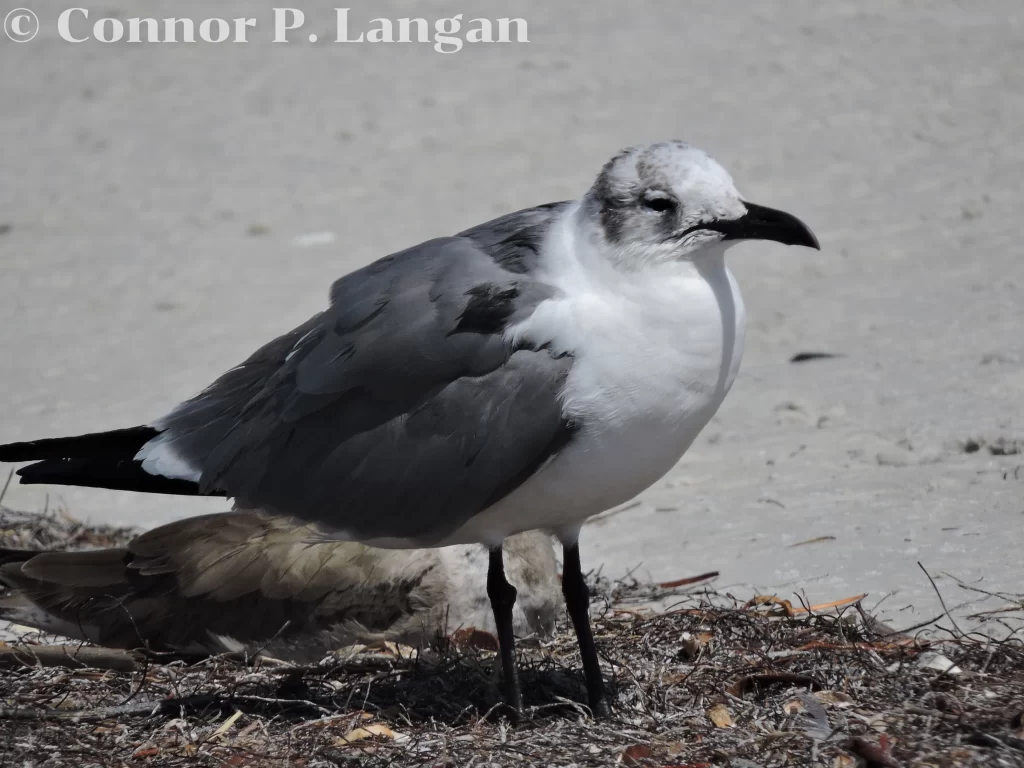
Pesticides
The presence of pesticides within the environment has been harmful to an assortment of bird species. Many birders know that DDT was harmful to raptors such as hawks, eagles, and falcons during the 1970s. However, some may be surprised to know that DDT also had a significant impact on gull populations. It’s true – gulls were just as susceptible to DDT as raptors thanks to their tendency to scavenge fish and dead animals.
Although DDT was outlawed long ago in the United States, this harmful chemical is still being produced. Moreover, it has been found that DDT continues to impact gull populations. DDT is perhaps the most notorious pesticide that has impacted gulls, but compounds such as PCBs and mercury are also known to alter some gull populations.
Human Persecution
The decline of some gull species can be attributed–in part–to human persecution. As discussed, gulls are not popular with many people, and there are some people who wonder, “Can you kill a seagull?”.
This unwarranted hatred for gulls causes some people to act out and purposefully harm them and/or their eggs. Those who lash out may shoot or poison these birds. Remember, such acts are illegal in most countries. While human persecution may be responsible for local declines, it is not thought to be a source of large-scale declines.
Habitat Degradation
Habitat Degradation is a major problem for many bird species, and this reality is no different for gulls. Fortunately for these birds, they are quite adaptable. This means that they can eat and sleep in places where most birds cannot. Although gulls are adaptable during migration, they often have specific habitat requirements for their breeding grounds. It is during nesting that gulls are most vulnerable to habitat degradation. Therefore, any changes to such land could have a big impact on the gulls who breed there.
Human Impact On Food Sources

Humans have been a blessing and a curse to gulls trying to survive in this modern era. On one hand, gulls have been able to colonize new locations that never would have been possible in the past thanks to garbage dumps being such a dependable food source.
However, humans likely do more harm than good when it comes to impacting gull food sources. For instance, overfishing is thought to be driving declines in many gull species, as it makes it difficult for gulls to dive for fish.
How To Legally Discourage Seagulls?
Now that you know that the answer to the question, “Are gulls protected?” is yes in many places, you may be wondering about how to discourage these birds without harming them. What are some solutions?
Well, strategies for discouraging seagulls will depend on where you live. Those who don’t live by water aren’t likely to have much gull traffic, so such landowners won’t need to consider questions like, “Is it illegal to kill a seagull?”. However, if you live by an ocean, lake, or pond, then you may have gulls that routinely stop by your residence. They may perch on docks, sleep on light posts, eat from bird feeders, or even roost in nearby trees.
Of course, those who are regularly visited by gulls are likely to host many of these birds since they are quite social. Having a lot of gulls frequent your property can be messy with all of the feathers, droppings, and food scraps that they leave behind. So, what are some good ways to (legally) discourage gulls from a property?
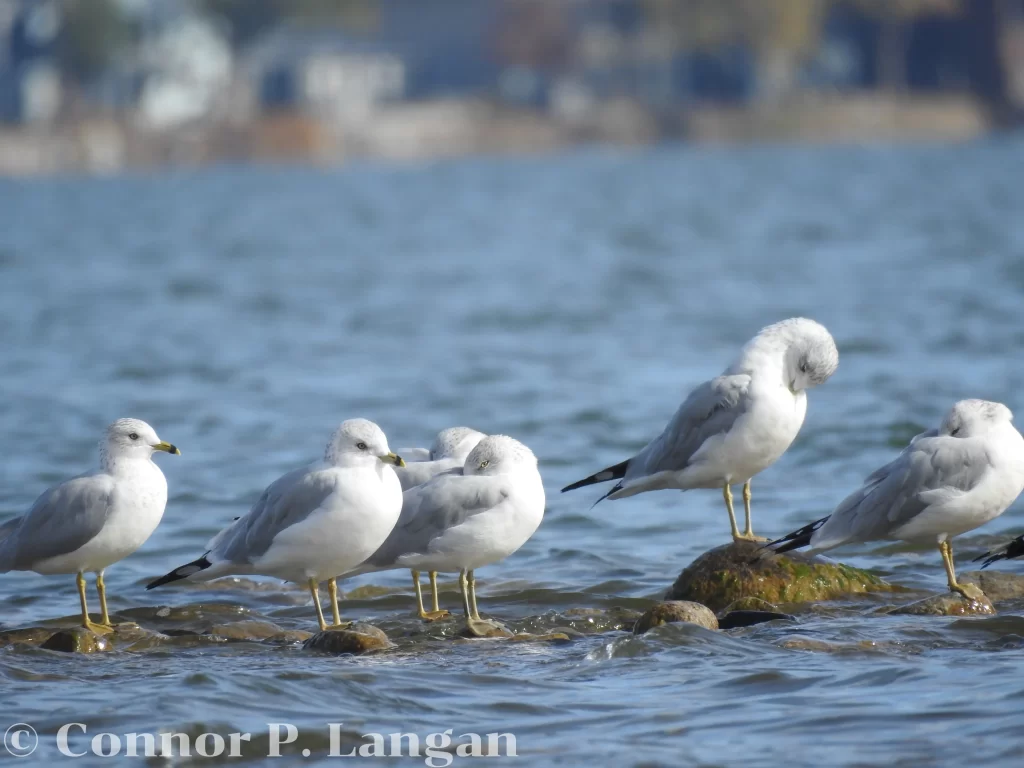
Well, one thing that a landowner can do is put up an owl decoy near a spot where gulls frequently perch. This is often a good way to make them disappear for a short time. However, if you leave the decoy in the same spot and never move it, gulls are likely to catch on to you and return. Removing the decoy for bouts of time and putting it in new locations may be enough to outsmart the gulls.
You may also try to scare them away with some sort of loud noise. It is not advisable to fire a gun to produce a loud, startling noise. Instead, those who have gulls on their property may want to purchase an air horn to blare at a group of seagulls. This will surely startle the group and prompt them to take flight, but can you kill a seagull on accident using this method? Fortunately, this is extremely unlikely, as gulls will probably just fly away from your property.
Another humane option for discouraging seagulls would be to buy a kite that is shaped like a hawk or falcon. You can then fly the kite when you notice that a group of seagulls are congregating on your property. Gulls know to avoid raptors since these birds may prey on them. Therefore, if they see a raptor-shaped kite, they will surely flush from their roost.
The three aforementioned methods of legally discouraging gulls are good for people to practice around their private homes. However, you will need to alter your behavior in public. Remember, birds have just as much right to public locations as humans.
Also, be sure to keep in mind that gulls should be treated with humanity. Don’t try to cause them any pain, as they can feel pain just like humans. These intelligent birds are even capable of producing tears, so be sure to give them the respect that they deserve.
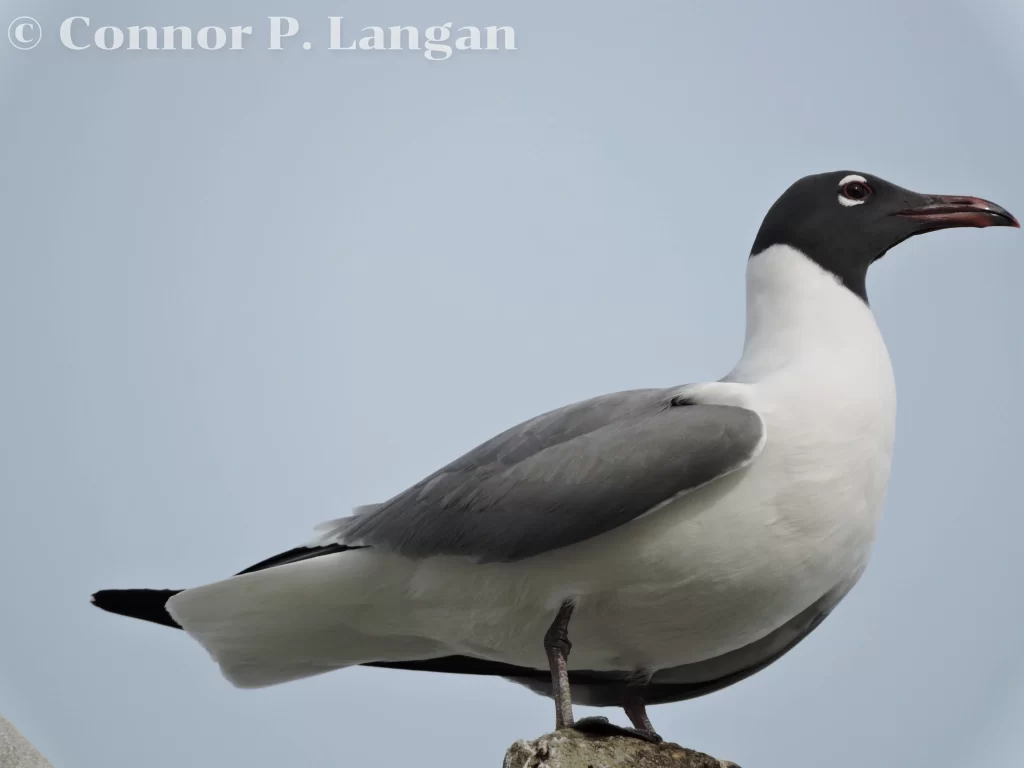
Before attempting to legally discourage gulls, consider that these birds live busy lives like you and I. Many of them are undoubtedly tired from their migratory journey or their daily activities. Therefore, if they are simply resting on your property without digging through garbage or making a mess, consider allowing them to catch up on some much-needed sleep.
What Are The Benefits Of Seagulls?
Those who wish to discourage seagulls may scoff at the notion that seagulls can have any benefits to humans, but it’s true! Aside from filling important ecological niches, gulls provide an assortment of services that even the most staunch gull hater can appreciate. Let’s take a look:
-
- Nature’s garbage collection: Along with species such as vultures and eagles, gulls are known to frequently dine on carrion. Whether they’re eating a dead, smelly fish from a lakeshore or cleaning up the food in a McDonald’s parking lot, gulls perform the inglorious job of cleaning up the world.
-
- Critter control: Although gulls themselves are often regarded as pests, these birds are known to consume an assortment of creatures that humans often regard as pests. For instance, they have been observed eating carp, mice, rats, and even rabbits!
-
- Benefits to local economies: The gull family has great variety, and these birds tend to wander. This means that they often show up in unexpected places, and where there’s a rare bird, birders will doubtlessly follow! Rare gulls may be a single-day phenomenon, or they may hang out in an exciting destination for months. Whatever the case may be, an influx of birders often brings a boon for business to local economies.
How Long Do Seagulls Live?
Gulls are capable of living surprisingly long lives. Some of the medium to large gull species can easily live for more than 30 years in the wild, while the smaller gull species are lucky to live past 10 years. The amount of time a gull can live is a testament to the adaptability and resilient nature of these birds.
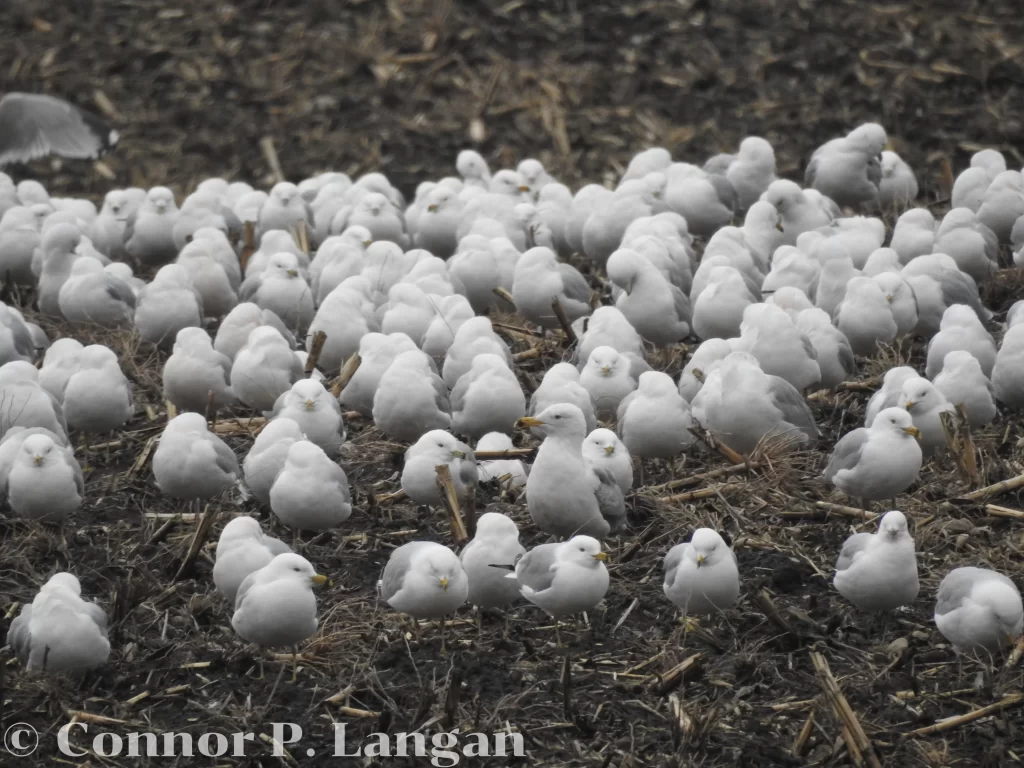
Can You Shoot Seagulls?
Although I’ve laid out plenty of reasons to admire seagulls, many still have an unjust hatred of these birds. This may prompt them to wonder if seagulls can be shot just like bad birds such as House Sparrows. So, can you shoot seagulls; is it legal to shoot seagulls?
No, shooting seagulls is absolutely illegal. Indeed, such an offense could result in heavy fines or jail time, so it’s best to avoid shooting gulls. Besides, shooting a bird simply because it exists is inhumane and cruel.
Conclusion – Are Seagulls Protected?
Now that you’ve read this article, you should feel better equipped to answer the question, “Are seagulls protected by law?”. Gulls are protected in most countries thanks to legislation such as the Migratory Bird Treaty Act. Although you may not like these creatures, it is hard to refute the impressive qualities of these birds. They are undoubtedly among the most intelligent birds. Although some may think that gulls are too smart for their own good, these birds have been able to persist despite all of the challenges facing their populations today.
Let’s recap some of the main points of this article to conclude:
- Are seagulls protected birds? Yes, seagulls are protected in most countries
- Are seagulls endangered? Yes, some gull species are endangered
- Is it illegal to kill a seagull? Yes, killing a seagull is illegal in most countries
- Can you shoot seagulls? No, shooting seagulls is illegal and inhumane

